Treatment cost
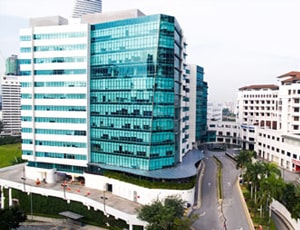
Parkway Pantai located in Kuala Lumpur, Malaysia is accredited by JCI. Also listed below are some of the most prominent infrastructural details:

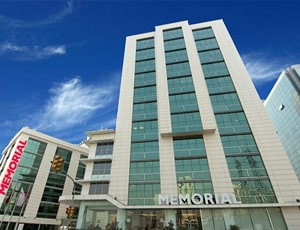
The cost for Capsule Endoscopy ranges from USD 2080 - 2240 in Memorial Atasehir Hospital
Memorial Atasehir Hospital located in Istanbul, Turkey is accredited by JCI. Also listed below are some of the most prominent infrastructural details:
DOCTORS IN 13 SPECIALITIES
FACILITIES & AMENITIES
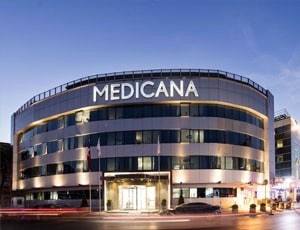
The cost for Capsule Endoscopy ranges from USD 2070 - 2350 in Medicana Bahcelievler Hospital
Medicana Bahcelievler Hospital located in Istanbul, Turkey is accredited by ISO, JCI. Also listed below are some of the most prominent infrastructural details:
DOCTORS IN 13 SPECIALITIES
FACILITIES & AMENITIES
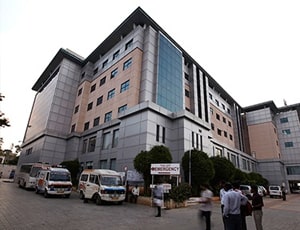
The cost for Capsule Endoscopy ranges from USD 2410 - 2640 in BGS Gleneagles Global Hospitals
BGS Gleneagles Global Hospitals located in Bengaluru, India is accredited by NABH, NABL. Also listed below are some of the most prominent infrastructural details:
DOCTORS IN 14 SPECIALITIES
FACILITIES & AMENITIES
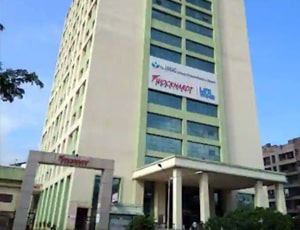
The cost for Capsule Endoscopy ranges from USD 2320 - 2600 in Wockhardt Hospital, Umrao
Wockhardt Hospital, Umrao located in Thane, India is accredited by NABH. Also listed below are some of the most prominent infrastructural details:
DOCTORS IN 13 SPECIALITIES
FACILITIES & AMENITIES
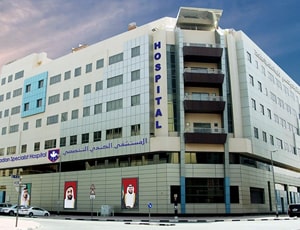
Canadian Specialist Hospital located in Dubai, United Arab Emirates is accredited by JCI. Also listed below are some of the most prominent infrastructural details:

The cost for Capsule Endoscopy ranges from USD 2230 - 2560 in Indraprastha Apollo Hospital
Indraprastha Apollo Hospital is known for delivering treatment to over 200,000 patients every year; 10,000 of which are generally medical tourists. The efficient team of doctors has the record of 99.6 percent success rate. Indraprastha Apollo Hospital deals in treatment of over 50 specialities.
Let’s see some of the features of the infrastructure:
DOCTORS IN 14 SPECIALITIES
FACILITIES & AMENITIES
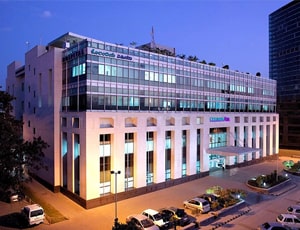
Manipal Hospital, Yeshwantpur located in Bengaluru, India is accredited by NABH. Also listed below are some of the most prominent infrastructural details:
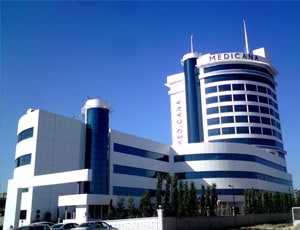
The cost for Capsule Endoscopy ranges from USD 2090 - 2320 in Medicana Konya Hospital
Medicana Konya Hospital located in Konya, Turkey is accredited by JCI. Also listed below are some of the most prominent infrastructural details:
DOCTORS IN 9 SPECIALITIES
FACILITIES & AMENITIES
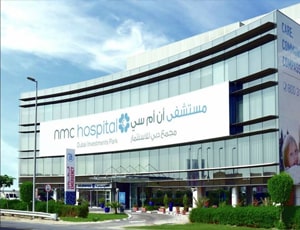
NMC Royal Hospital, DIP located in Dubai, United Arab Emirates is accredited by JCI. Also listed below are some of the most prominent infrastructural details:
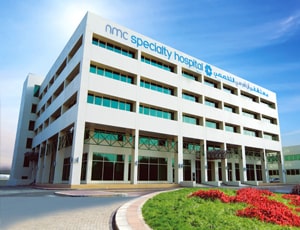
NMC Specialty Hospital - Al Ain located in Abu Dhabi, United Arab Emirates is accredited by JCI. Also listed below are some of the most prominent infrastructural details:
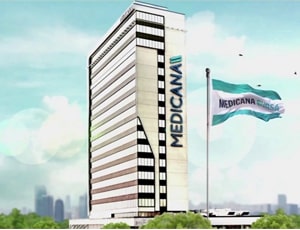
The cost for Capsule Endoscopy ranges from USD 2160 - 2320 in Medicana Bursa Hospital
Medicana Bursa Hospital located in Bursa, Turkey is accredited by ISO, JCI. Also listed below are some of the most prominent infrastructural details:
DOCTORS IN 11 SPECIALITIES
FACILITIES & AMENITIES
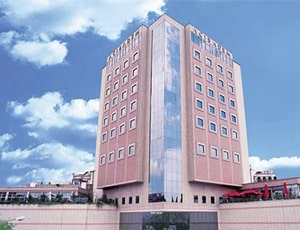
The cost for Capsule Endoscopy ranges from USD 2140 - 2280 in Acibadem Bakirkoy Hospital
Acibadem Bakirkoy Hospital located in Istanbul, Turkey is accredited by JCI. Also listed below are some of the most prominent infrastructural details:
DOCTORS IN 9 SPECIALITIES
FACILITIES & AMENITIES

The cost for Capsule Endoscopy ranges from USD 2080 - 2200 in Acibadem Hospital Taksim
Acibadem Hospital Taksim located in Istanbul, Turkey is accredited by JCI. Also listed below are some of the most prominent infrastructural details:
DOCTORS IN 8 SPECIALITIES
FACILITIES & AMENITIES

The cost for Capsule Endoscopy ranges from USD 2200 - 2370 in Acibadem Maslak Hospital
Acibadem Maslak Hospital located in Istanbul, Turkey is accredited by JCI. Also listed below are some of the most prominent infrastructural details:
DOCTORS IN 10 SPECIALITIES
FACILITIES & AMENITIES
Video capsule endoscopy (VCE), popularly known as capsule endoscopy, is a specialized, non-invasive test to visualize the entire gastrointestinal (GI) tract. The GI tract starts from the mouth (oral cavity) and ends at the rectum through the esophagus, stomach, and the small and large intestine.
Capsule endoscopy is an advanced endoscopic technology that uses a swallowed camera-enabled capsule. This capsule takes the pictures of the GI tract from the inside until it is finally eliminated naturally from the body. As the capsule moves, the pictures are transmitted to a receiver, which is worn by the patient at waist level in the form of a belt. The process continues for 8 hours.
Capsule endoscopy may be used for the following reasons:
The rising popularity of capsule endoscopy can be attributed to the fact that it is not invasive and painful as compared to a GI endoscopy. Also, it helps provide detailed and comprehensive imaging of the entire GI tract.
Capsule endoscopy is an advanced endoscopic technology that uses a swallowed camera-enabled capsule. This capsule takes the pictures of the GI tract from the inside until it is finally eliminated naturally from the body. As the capsule moves, the pictures are transmitted to a receiver, which is worn by the patient at waist level in the form of a belt. The process continues for 8 hours.
Recovery after capsule endoscopy is painless and simple. Patients should wait for at least two hours before they start drinking clear fluids after swallowing the capsule. A light snack or meal is allowed four hours after the capsule is taken.
The capsule eliminates by itself within 8 hours of ingestion. In some cases, it may be eliminated in the stool before that. The specialist can process the images from the received ties to the abdomen after 8 hours of before, depending on when the capsule is eliminated.
Ask your healthcare adviser for the best multiple options and choose the one that meets your expectations
Capsule Endoscopy cost in Malaysia varies from one hospital to the other. There are many hospital that cover the cost of pre-surgical investigations of the patient in the treatment package. Typically, the package cost of Capsule Endoscopy in Malaysia includes the expenses related to the surgeon's fee, anesthesia, hospital, meals, nursing and ICU stay. There are many things that may increase the cost of Capsule Endoscopy in Malaysia, including prolonged hospital stay and complications after the procedure.
There are many hospitals across the country that offer Capsule Endoscopy to international patients. Some of the best hospitals for Capsule Endoscopy in Malaysia include the following:
After discharge from the hospital, the patient has to stay for another 2 days in the country for complete recovery. This time frame is important to ensure that the surgery was successful and the patient is fit to fly back.
Apart from the Capsule Endoscopy cost, there are a few other daily charges that the patient may have to pay. These are the charges for daily meals and accommodation outside the hospital. These charges starts from USD 50 per person.
Some of the best cities in Malaysia which offer Capsule Endoscopy are:
The average duration of stay at the hospital after Capsule Endoscopy is about 1 day for proper care and monitoring. The patient is subjected to several biochemistry and radiological scans to see that everything is okay and the recovery is on track. After making sure that patient is clinically stable, discharge is planned.
There are more than 1 hospitals that offer Capsule Endoscopy in Malaysia. These clinics have propoer infrastructure as well as offer good quality of services when it comes to Capsule Endoscopy Apart from good services, the hospitals are known to follow all standard and legal guidelines as dictated by the local medical affairs body or organization.